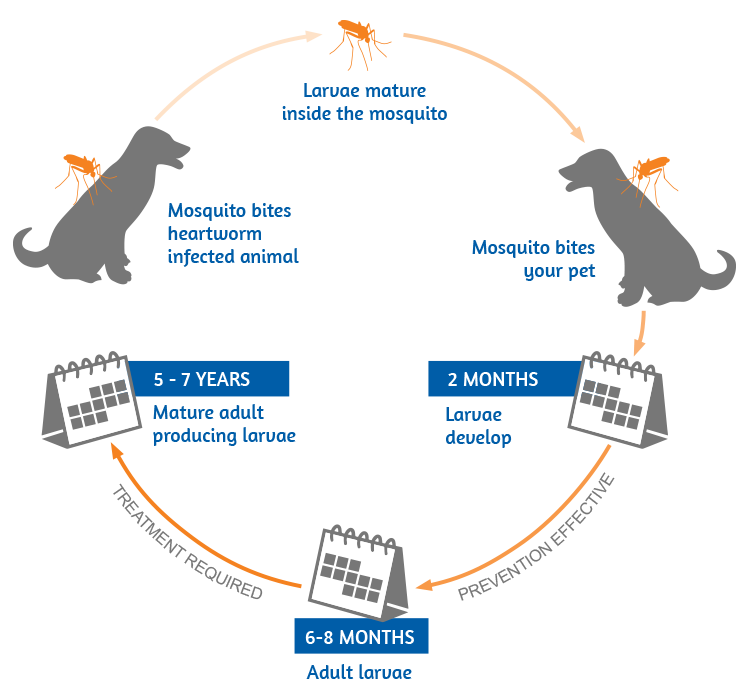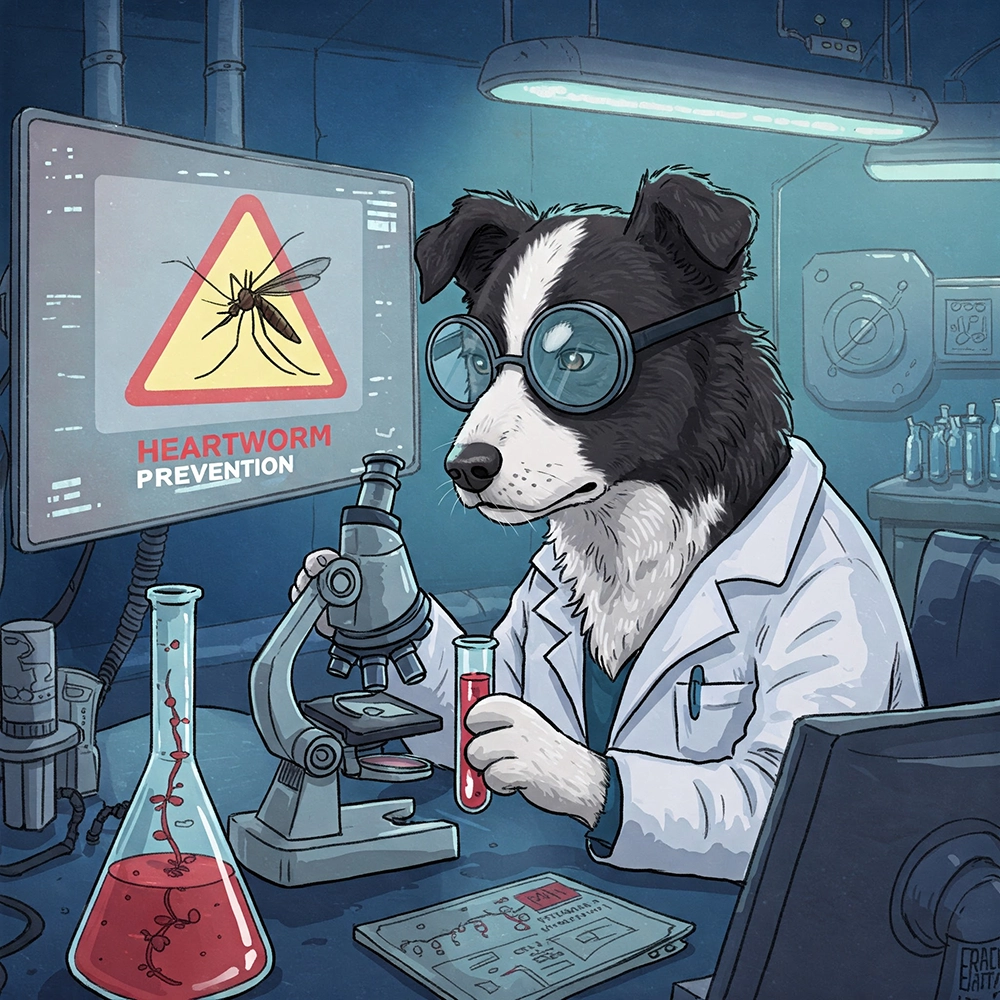Heartworm disease is caused by a parasite called Dirofilaria immitis. It lives in the right side of the heart and the adjacent blood vessels. Its presence causes cardiovascular weakness, compromised lung capacity and eventual death. Heartworm disease occurs primarily in dogs but can occur on occasion, in cats and other mammals.
Heartworm is transmitted from dog to dog by mosquitoes. When a mosquito draws blood from a dog infected with heartworm, it takes with it a number of small immature worms called mircrofilariae. Once inside the mosquito, the microfilariae develop into larvae. Later when the mosquito bites a new victim, the larvae are injected and that dog becomes infected.
It takes 6 to 8 months for the larvae to develop into adult worms. The adults shed a protein that is picked up on the heartworm test. So, if the transmission season (the time of year when infective mosquitoes can bite) ends in October; it will take until late spring for a dog infected at the end of the season to test positive.

Dogs are tested before being put on preventative medication for the summer. The test is a simple blood test. With a negative result, your dog can begin heartworm medication for the season. These medications are given once per month from June to November each year. If you travel south during the winter months (i.e. Florida) with your canine companion, mosquitoes will be present. It is important to consider heartworm prevention before heading on your trip.
The treatment of heartworm disease itself is quite complicated and can have a number of very serious effects. Heartworm prevention is very safe and effective. There are many forms of heartworm preventative medications. Sixteen Mile Veterinary Clinic likely carries both chewable tablets and topical liquids. Talk to Dr Trisch or Dr Honda to determine which specific medication best suits you and your pet.



